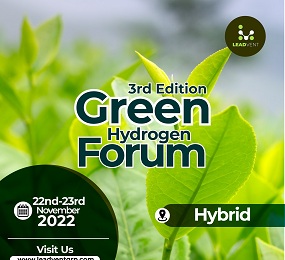The world is undergoing a significant transformation as it seeks solutions to combat climate change and reduce dependence on fossil fuels. Hydrogen technology, often seen as a key player in the future of clean energy, is rapidly evolving. As we approach 2025, several emerging trends in hydrogen technology are expected to shape the energy landscape. These trends reflect the increasing role of hydrogen in sustainable energy systems, transportation, and industrial processes.
In this article, we will explore the top hydrogen technology trends to watch for in 2025, highlighting innovations and advancements that promise to drive the energy transition.
1. Green Hydrogen Production: Scaling Up Efficiency
One of the most significant trends in hydrogen technology for 2025 is the increased focus on green hydrogen production. Green hydrogen is produced using renewable energy sources like wind, solar, or hydropower, making it a clean alternative to conventional methods. Electrolysis, which uses electricity to split water into hydrogen and oxygen, is expected to become more efficient and cost-effective as research advances. Significant investments are being made in electrolyzer technology, and large-scale green hydrogen plants are set to emerge globally.
Key players in the hydrogen industry are also looking at new electrolysis techniques, such as solid oxide electrolyzers (SOE) and proton exchange membrane (PEM) electrolyzers, which offer higher efficiencies and reduced costs. In 2025, green hydrogen could become a cornerstone of a sustainable energy ecosystem.
2. Hydrogen Storage and Distribution Innovations
Hydrogen storage and distribution have long been technical challenges that have slowed the widespread adoption of hydrogen fuel. However, 2025 is expected to see substantial improvements in storage technologies. Solid-state hydrogen storage, which involves the use of metal hydrides or chemical compounds to absorb hydrogen, is becoming a viable solution. Additionally, advancements in high-pressure storage systems and cryogenic storage are expected to enhance the transport and storage of hydrogen over long distances.
As global hydrogen infrastructure expands, new methods for hydrogen transport—such as ammonia carriers or hydrogen pipelines—are also gaining traction. These developments will make it easier to integrate hydrogen into existing energy systems, paving the way for a global hydrogen economy.
3. Hydrogen Fuel Cells for Transportation
Fuel cell technology remains one of the most promising applications of hydrogen. In the transportation sector, hydrogen fuel cells offer the potential for zero-emission vehicles with faster refueling times and longer ranges than battery electric vehicles (BEVs). In 2025, we can expect to see more widespread deployment of hydrogen-powered vehicles across various segments, including heavy-duty trucks, buses, and trains.
Companies are also investing in fuel cell-powered aircraft, with several prototypes already under development. The growth of hydrogen refueling infrastructure will be critical to the success of fuel cell vehicles, and significant progress is anticipated in 2025. This expansion will provide more options for consumers and industries looking to transition away from fossil fuels.
4. Hydrogen-Powered Industrial Applications
Industries such as steel manufacturing, chemical production, and cement production are heavy emitters of carbon dioxide. Hydrogen is poised to play a transformative role in these sectors, offering a cleaner alternative to traditional high-carbon processes. Hydrogen can be used as a direct feedstock in industrial processes or as a fuel for heat generation, replacing fossil fuels like coal and natural gas.
In 2025, we expect to see an increase in the number of pilot projects and commercial-scale applications that integrate hydrogen into industrial production. For example, the steel industry is exploring hydrogen-based direct reduction processes, which could drastically cut emissions from steel manufacturing. These advancements will help industries meet stricter emissions regulations and contribute to global decarbonization efforts.
Hydrogen technology is on the brink of a major transformation, with 2025 expected to be a pivotal year for the sector. From green hydrogen production to fuel cells, storage solutions, and industrial applications, innovations across the hydrogen value chain will unlock new possibilities for clean energy. As global efforts to combat climate change intensify, hydrogen’s role in the energy transition will continue to grow, making it an essential pillar of a sustainable, low-carbon future.
With strong investments, government support, and technological breakthroughs, hydrogen technology is poised to reach new heights in the coming years. Whether it's fueling vehicles, decarbonizing industries, or enabling decentralized energy systems, hydrogen is a technology to watch closely as it reshapes the world’s energy landscape.
For more details and registration information, visit https://bit.ly/47fv861
For more information and group participation, contact us: [email protected]
















